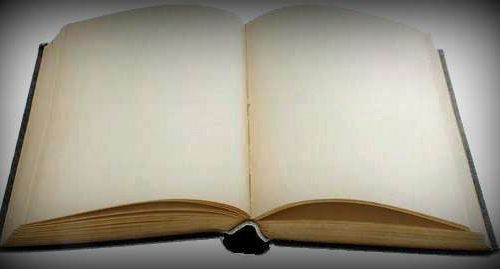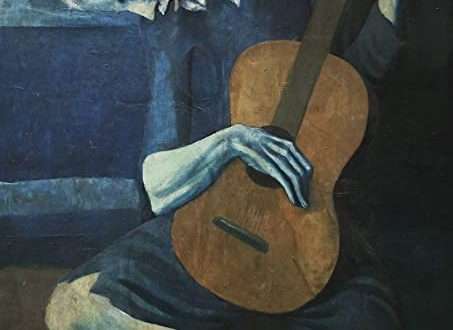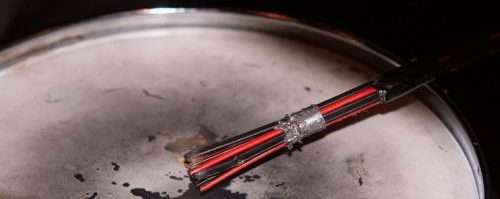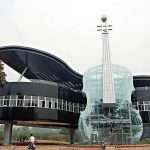
The history of the piano in the context of world progress
Contents
 Have you ever thought about the path through which individual, fairly everyday objects that surround us in everyday life have to go? For example, what is piano history?
Have you ever thought about the path through which individual, fairly everyday objects that surround us in everyday life have to go? For example, what is piano history?
If you haven’t thought about it or if you’re just bored with the story, then I’ll immediately warn you against reading it: yes, there will be dates and there will be many facts that I will try to make, to the best of my modest strength, not as dry as their teachers set out at school.
Piano like sacrifice consequence of progress
Progress does not stand still and, once goggle-eyed and bulky, modern monitors and televisions make ladies who are always on diets jealous of their slimness; phones are no longer just everywhere with you, but now they also have free access to the Internet, GPS navigation, cameras and thousands of other useless gadgets.
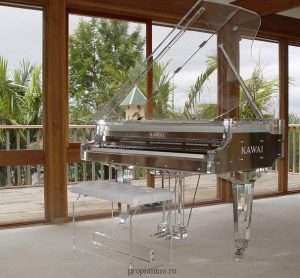
Often, progress is extremely cruel and the subjects of new trends are treated with their predecessors like children with retired parents. But, as they say, every progress has its dinosaurs.
Keyboard instruments have also come a long way in development, but classical instruments such as the piano, grand piano, organ and many others related to them have not given way to synthesizers and midi keyboards and gone to the dustbin of history. And, I will tell you a secret, I am sure that this will never happen.
When and where was the piano born?
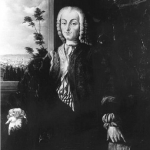 When people talk about when the first piano appeared, it is traditionally believed that Florence (Italy) was its birthplace, and Bartolomeo Cristofori was the inventor; the exact date is 1709 – it was this year that Scipio Maffei called the year of the appearance of the pianoforte (“a keyboard instrument that plays softly and loudly”), and at the same time gave the first name to the instrument, which was fixed to him almost all over the world.
When people talk about when the first piano appeared, it is traditionally believed that Florence (Italy) was its birthplace, and Bartolomeo Cristofori was the inventor; the exact date is 1709 – it was this year that Scipio Maffei called the year of the appearance of the pianoforte (“a keyboard instrument that plays softly and loudly”), and at the same time gave the first name to the instrument, which was fixed to him almost all over the world.
Cristofori’s invention was based on the body of the harpsichord (remember that in the days when microphones did not exist, the original volume of the instrument was extremely important) and a keyboard mechanism similar to the clavichord. 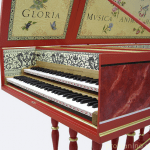
I do not advise, however, to treat this date and the name of the inventor too trustingly – remember the history of the appearance of the radio. Who dares to name with absolute certainty its specific inventor? And there are more than enough candidates for this place of honor: Popov, Markel, Tesla.
The situation is similar with the invention of the piano – it was not a sudden discovery – the Italian simply got an honorary branch of the championship, but if, for some reason, something happened to him, then the Frenchman Jean Marius would develop such a piano instrument in parallel with him and the German Gottlieb Schroeder.
Let’s be honest enough with ourselves and with human history – I personally think that all these scientists are innovators. Why? Everything is elementary. If we return to the history of the development of the piano, then this instrument also did not appear overnight.
The first version, created by Cristofori, was infinitely far from the piano that we are used to seeing. But the tool has not ceased to evolve for almost three hundred years! And this is only from the moment it was designed into a more familiar look for a modern person, but in order to reach this stage, centuries of progress of musical instruments had to pass.
There is one most interesting theory of the appearance of the very first musicians. Ordinary hunters became primitive musicians, who suddenly realized that ordinary hunting tools are capable of making melodic sounds.
So the bowstring is, in fact, the very first string in the world! But the very, very first instrument is the so-called Pan’s flute – it takes its origin from the most primitive weapon – the spitting pipe.
The Pan flute is the progenitor of such an instrument as the organ, namely the organ was the first keyboard instrument (it appeared around 250 BC in Alexandria of Egypt). 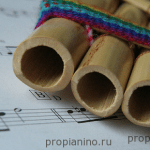
And if the spitting pipe is the “great-grandfather” of the piano, then its “great-grandmother” is the bow already mentioned above. The sound of a bowstring being pulled by an arrow inspired primitive hunters to create the first stringed-plucked instrument – the harp.
This instrument is so ancient that it was known before the beginning of ancient times; it was even mentioned in the biblical Book of Genesis. Many branches followed from the harp and, ultimately, it influenced the development of all musical instruments, the sound of which is based on strings: guitar, violin, harpsichord, clavichord and, of course, our main character, the piano.
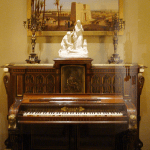 Another key detail in the history of the piano, apart from the strings, as you might have guessed by now, are the keys. Approximate to the modern keyboard traces its history from medieval Europe since the XIII century.
Another key detail in the history of the piano, apart from the strings, as you might have guessed by now, are the keys. Approximate to the modern keyboard traces its history from medieval Europe since the XIII century.
It was then that for the first time the construction of keys similar to our eyes and fingers, which is familiar to our eyes and fingers, saw the light – 7 white and 5 black in an octave, in total 88 keys.
But in order to create a keyboard of this type, a path was not much shorter than from a harp to a harpsichord. Many musicians, whose names have forever disappeared into the ages, struggled to understand what its structure should be.
Then there were no black keys at all and, accordingly, the performers did not have the opportunity to play semitones, which, roughly speaking, was quite flawed. Let’s not forget that the classical system of seven notes was also born in disputes for quite a long time.
Is there nowhere to develop further?
 Music has accompanied man since the times when there were no states yet, and has developed in close contact not only with technological progress, but also with general changes in the human worldview.
Music has accompanied man since the times when there were no states yet, and has developed in close contact not only with technological progress, but also with general changes in the human worldview.
The piano took more than 2000 years to form into the instrument that we are used to seeing and hearing.
And when, as it seems, there is nowhere to develop further, progress will present us with many surprises, do not hesitate!



